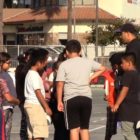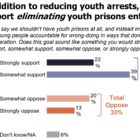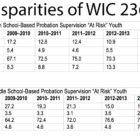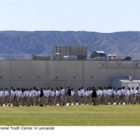
Arts Seen As Crucial to Healing Youth, Changing the Juvenile Justice System
|
For Jordan, growing up in Jamaica, Queens in New York City left much to be desired. One of the few places he could go after school were the youth arts programs in...
Juvenile Justice Information Exchange (https://jjie.org/series/los-angeles-bureau/page/2/)
Juvenile justice is a complex issue — one that affects communities in different ways. Understanding this, JJIE is working to extend coverage across the country. The Los Angeles Bureau is part of this effort that contributes in-depth reporting of national interest.
The Los Angeles Bureau is at the University of Southern California Annenberg School for Communication and Journalism. Students cover both Los Angeles and much of Southern California.

For Jordan, growing up in Jamaica, Queens in New York City left much to be desired. One of the few places he could go after school were the youth arts programs in...

California after-school programs statewide were able to breathe a small sigh of relief this year after Gov. Jerry Brown set aside an extra $50 million for them from the...

California’s juvenile prisons have long had a poor reputation as mere stops on the way to grown-up prisons, overcrowded places where reform or rehabilitation were rarely achieved.

Marbella Munoz was a foster child for most of her life. As is true for many foster children bounced through multiple placements, she was frequently forced to change schools.
Munoz’ story comes from a new report that examines and analyzes a controversial youth crime prevention strategy run by the Los Angeles County Probation Department, the nation’s largest juvenile probation system.

Michelle Guymon is a hero in the world of child sex trafficking prevention.
Seven years ago, she had no idea Los Angeles County had a child sex trafficking problem
Now Guymon is director of the Child Trafficking Unit for the Los Angeles County Probation Department and is part of the group that aims to make LA’s efforts to combat child sex trafficking a model for the nation.

Proposed legislation would move juvenile justice in California closer to rehabilitating youth rather than punishing them, juvenile advocates say.

The Los Angeles County Office of Education boasts that scores of young people who were at risk of dropping out of high school get their high school diplomas or their GED credentials while they’re in LA County’s juvenile probation camps each year. It’s a monumental and pivotal moment for students who often have fallen behind in school and so might not expect such an accomplishment.

Should youth incarcerated in California juvenile halls and camps be entitled to new underwear? Should family and friends be assured that their visits to youth in detention facilities be in person rather than through video screens? Should these youth be guaranteed more time outdoors for exercise and fresh air?

Barry Krisberg has been advocating for progressive reform in the child welfare and juvenile justice systems since the late 1960s. He has seen the pendulum swing back and forth.
What does he say now?
“I think we’re moving into a nightmarish period in terms of the federal role in criminal justice.”

Los Angeles County’s newly chosen chief probation officer and her new second in command, who will both take over in January, are entering LA’s troubled probation department at a pivotal moment.